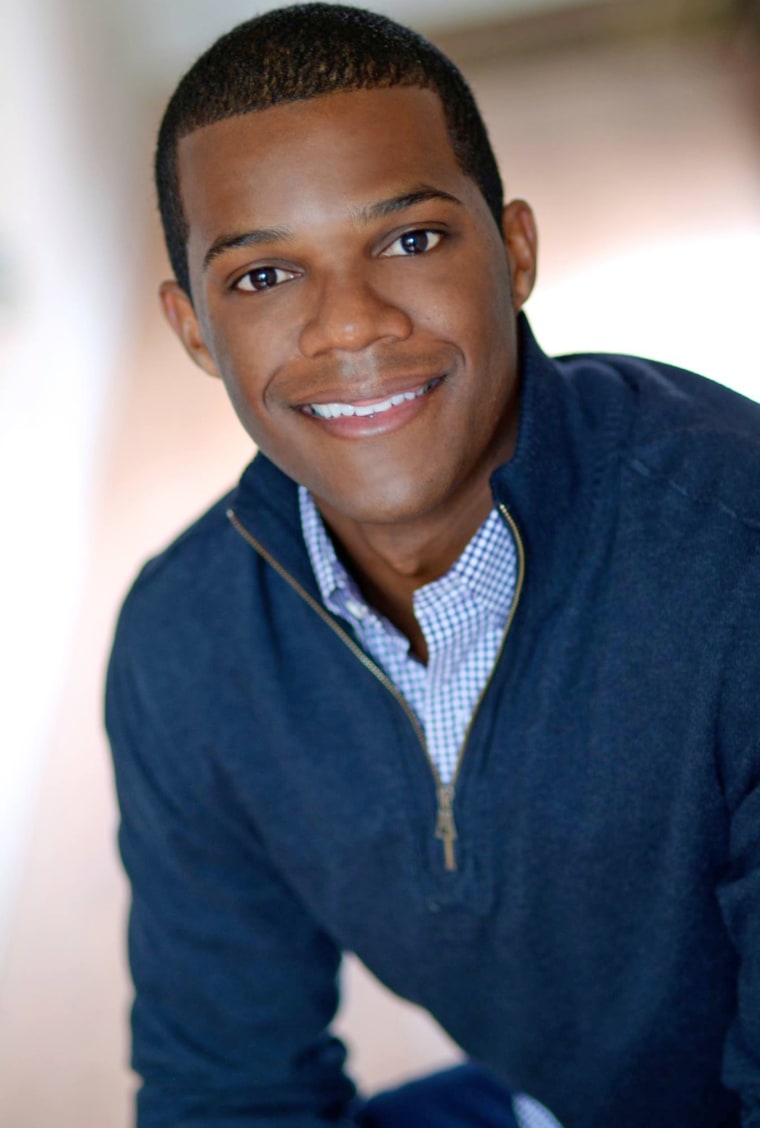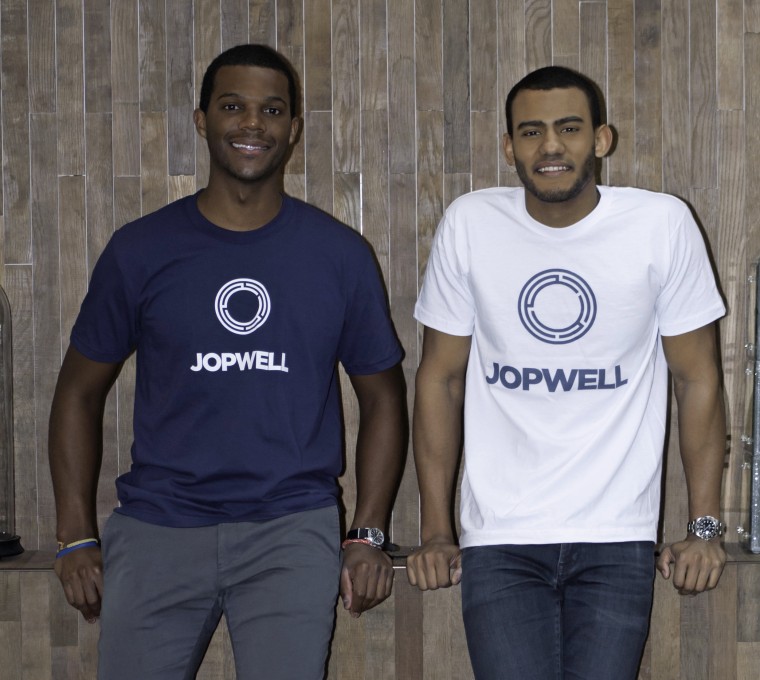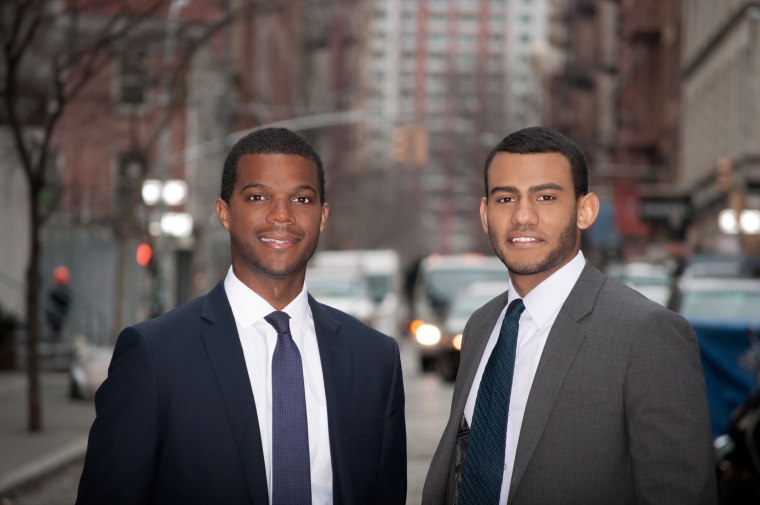Porter Braswell, CEO and Cofounder of minority recruiting platform, Jopwell, is someone to watch. Only 27, Braswell realized that he could directly connect his banking job at Goldman Sachs to a meeting he had with a recruiter while he was in high school—an opportunity not available to everyone.
After that ‘ah-ha’ moment, the New Jersey native took a leap of faith, quit his job, and decided to start a company that he thought could address the problem of access to jobs at high profile companies for minorities.
In January 2015, Braswell and his business partner, Ryan Williams, launched Jopwell out of lower Manhattan. The company has already caught the eye of big name clients such as Facebook, Pinterest, and Braswell’s old company, Goldman Sachs.
NBCBLK caught up with Braswell to talk having the courage to leave his job, building a startup, and what he hopes the lasting impact of Jopwell will be.
What is Jopwell and how is it different?
Jopwell is a tech enabled minority recruitment platform that helps companies connect and communicate with minority candidates for internships, entry-level positions, and experienced hiring opportunities.
Jopwell is different because we are really re-thinking how a company should go about diversity recruiting. Traditionally, it’s been a not for profit space that really hasn’t seen any disruptive thinking. My co-founder, Ryan Williams, and I thought there was a unique opportunity to come into this with a fresh perspective on minority recruiting and to challenge and re-think the way companies go about it.
How does Jopwell work?
When minorities sign up for the platform they create detailed profiles that take a holistic view of themselves. It’s not just your resume, which you can add, but words that describe themselves, an about me statement, a leadership moment, roles that interest them. It’s a variety of different things they can fill out that tell their story.
Companies now have the ability to search for those things in candidates—a certain school or role they want to fill, whatever it may be, they can now access candidates in a variety of different ways and more efficiently.

What initially brought diversity recruitment to your attention?
I was fortunate to go to the Lawrenceville School for high school, a boarding school in New Jersey. At the time, Morgan Stanley was recruiting high school students for summer internship programs. I didn’t know what Wall Street was, I didn’t know what finance was, but I got very lucky and got into a room to have an interview.
During that interview I was very honest, at 16 years old, and said, “listen, I don’t know much about finance but I can promise you that I will work harder than anyone, I will go above and beyond the call of duty,” and for whatever reason, that must have struck a cord with the recruiter and they gave me an opportunity.
We laughed at it, looked at each other, and the most terrifying moment came right after that, when we went from laughter to, “oh my God we actually just did this.”
So five summer internships [later] and having worked for three years at Goldman Sachs, I can directly trace that back to when I was 16 years old in a room at Morgan Stanley and that’s why I ended up in finance.
My "ah-ha moment" came when I realized I was sitting in my current seat because I was lucky enough to be exposed to a specific opportunity very early on in life, and thought, wouldn’t it be great to be able to build a platform that could expose other minorities to internship opportunities early in their lives as well.
Did you always know you wanted to work for yourself?
I didn’t always know I wanted to do my own thing, but I always knew I wanted to be passionate about what I pursued and put all my time and energy and effort towards it.
Growing up playing sports was such a blessing for me, I was always really good in a lot of different sports, but I was never really great at one sport. I always knew at some point I wanted to be great at one thing. I wanted to be great at a job, and I’ve realized that in order to be great at one thing you have to be 100 percent invested in it, so naturally that lends itself to owning your own thing and that really gets me excited.
What was the hardest part about leaving your full-time job?
The hardest part by far was convincing my parents that it's ok, I would survive if I took a leap of faith to start my own company. It was a difficult thing because you are looking people directly in the eyes who you trust and who you love, and they are telling you that you’re making a mistake, “don’t do this, stay the course because that’s how you become successful in life.”
five years from now I want to be known as the best diversity recruitment program—not the best minority recruitment program.
To have that feedback not just from my parents, who said that because thy love me, but all my friends who are saying, “you have a great job, why would you ever leave,” that is a difficult thing.
What was the best and worst moment to happen to you in the past year?
Best thing that happened was day one, sitting in a new office when I looked at Ryan and we locked eyes and we both just looked at started laughing. That was the best moment because it was one of the most defining fresh starts I’ve had in my life. It was like, “wow we finally did this, against all odds, we actually took this leap of faith.”
We laughed at it, looked at each other, and the most terrifying moment came right after that, when we went from laughter to, “Oh my God we actually just did this.”
It was in these two moments within 30 seconds that everything changed for me. Ever since that moment, both feelings, the fear of failing has propelled us to succeed, and when we succeed there is a burst of gratification. It’s that balance that happens everyday that’s been driving us forward.

Where do you see yourself and Jopwell in 5 years?
I think that we have been successful in a platform in five years if we are known as the source for diversity recruitment. We are setting out to do minority recruiting very well, but five years from now I want to be known as the best diversity recruitment program—not the best minority recruitment program.
Personally, I will know I’ve been successful as a CEO when you can ask every person in the Jopwell organization, “what do you think of me?,” not only will they have an opinion of me, but I also want people to genuinely know that Porter cares about what he’s doing.
In five years if that’s what everyone at Jopwell can look at me and say, than that means I’ve set a great example and that whether I’m here or not the company will succeed—to me that’s success.
Any advice for young entrepreneurs?
I would say be prepared to have a one year conversation with yourself. I would strongly recommend, before you take any leap of any sort of faith you have at least a year to really think through every scenario you’re planning on one day doing. Get that gut feeling that you want to do something then cultivate that.
Also, I think a lot of times the minority community is taught from a very young age that to be successful in life you should go into the fields where you can climb the corporate ladder and put your head down, work had for 30 years then lift your head and there’s a retirement waiting for you.
One thing I’d like the minority community to know is there are a lot of ways to be successful a lot of ways to make money, it’s not just following the path that’s laid out for you.
[This interview has been edited and condensed for clarity]

